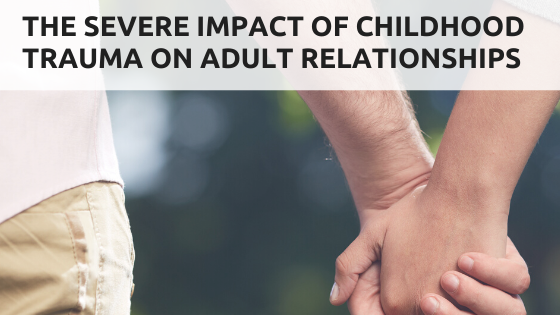The things we experience as children have a crucial effect on our emotional development. Our parents being our primary attachment figures play a major role in how we perceive the world. Are others trustworthy? Is this a safe place for adventures? It is the duty of the parents to build up a happy world for their children and keep them away from any kind of stress.
When a child goes through a long stressful period, he or she may suffer from complex trauma. This means that all children who have grown up in physically, sexually or emotionally abusive households have suffered likewise. If these children are not in the comfort of a secure relationship, they grow up to become adults who lack self-confidence. They are also liable to develop depression and anxiety issues. Considering how 60% of adults confess to having dealt with trauma in childhood, the situation is all the more grave.
Childhood experiences determine what will be the general attachment style of the child throughout his life. They affect the bond the child has with another person. Here are 4 basic attachment styles the children are most likely to develop based on their childhood experiences:
Secure Attachment
The children who grow up in a supportive household where parents are constantly available for them to develop a secure attachment with others. They are usually comfortable being open about themselves. They are good at asking for help from others and also in allowing others to count on them at an emotional level.
The securely attached individuals have a positive attitude towards life. They are comfortable in developing physical or emotional closeness without the fear of being rejected. They are generally consistent in their behavior and their partners can rely on them.
Dismissive- Avoidant Attachment
Children usually develop this attachment when their parents and family members are not attentive enough to their needs. These children feel rejected and avoided and as a result, they try to pull away emotionally. These children grow up to be adults who are uncomfortable being open emotionally. They may have a hard time forming any kind of intimate relations.
They like to remain independent in their life and place a high value on autonomy. They are not good at verbally expressing love and affection, though their behaviors indicate the contrary. They are shut down inside and keep a lot of secrets. These things can seriously affect their adult relationships.
Fearful- Avoidant Attachment
Also referred to as disorganized- disoriented, the children who develop this attachment have usually been subjected to prolonged abuse and neglect. Parents are the caretakers towards which a child goes when he longs for comfort and security. But, often in cases of abuse, the parents are also a source of distress.
When a child is being sexually abused parents must talk to their child about it and ease their pain. These children develop phobias, they have trouble sleeping, they often wet their beds. Also, they may try to harm themselves. Such children need immediate attention and care. Talking to a sex consultant is drastically beneficial. They are professionals who know how to comfort a child going through such a difficult phase.
These children grow up to be adults who fear intimacy within their relationships and also fear not having close relationships. Problems like premature ejaculation are most commonly found in such adults. They value a bond but they also have a hard time developing a strong bond as they tend to pull away from any relation. They have a fear of being hurt and rejected so they avoid being emotionally open with others. Counselling with an expert can easily cure this trauma in adults.
Anxious-Preoccupied Attachment
Also known as insecure-ambivalent, the children who develop this attachment are the ones whose parents are inconsistent in their behavior towards them. At times they are caring, nurturing them and paying attention to all their needs while at other times they get cold and rejecting. In such cases, the children are unable to figure out what to expect from their parents.
When they grow up, they tend to desire connection and attachment in their relationships to such an extent that sometimes they may be seen as clingy. Even minute changes in their relationships can trigger their anxiety. They put a lot of effort into keeping their relationship strong.
Take care of yourself!
Often adults are found to repeat the same behaviors and patterns throughout their lives. This does not mean that the parents are to be blamed. The adults are capable enough to bring about changes in their behaviors. Understanding which incidents have led to your attachment style will help you improve your behavior and relationships as an adult.








Add Comment